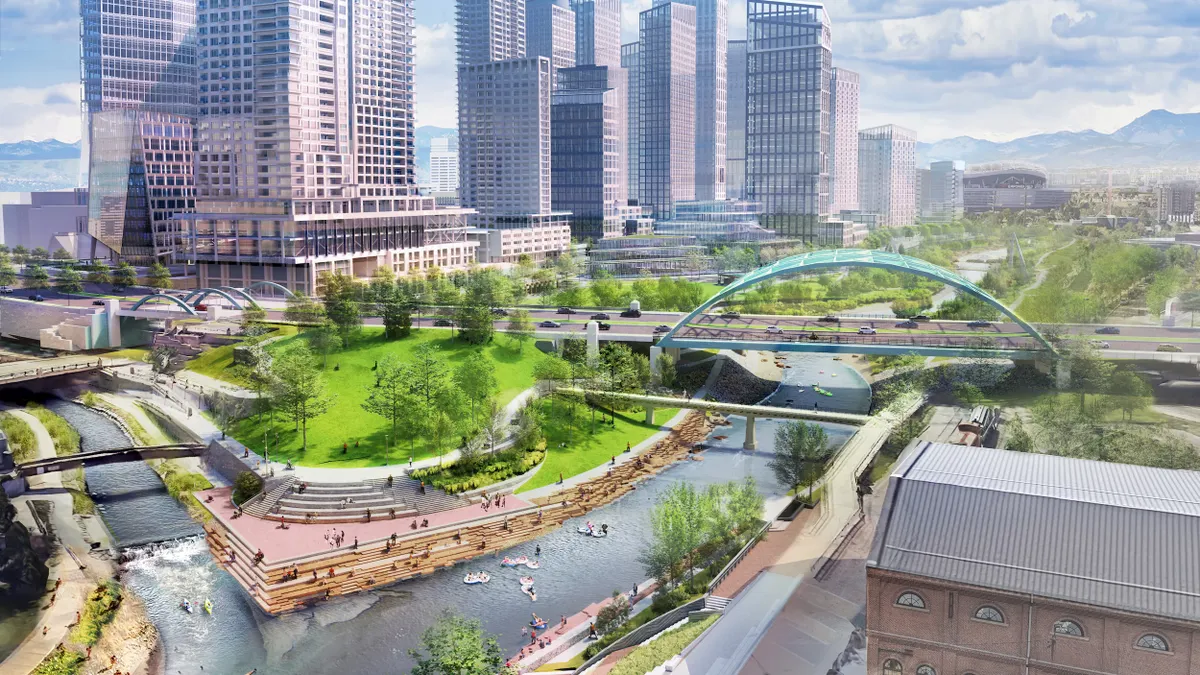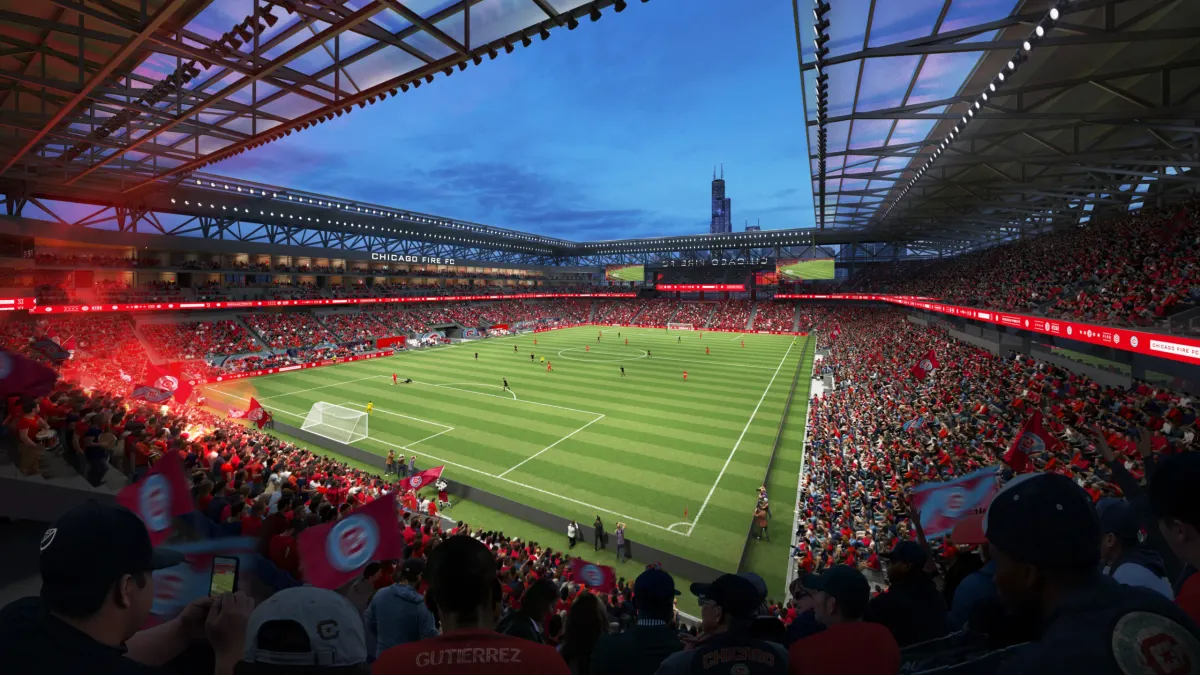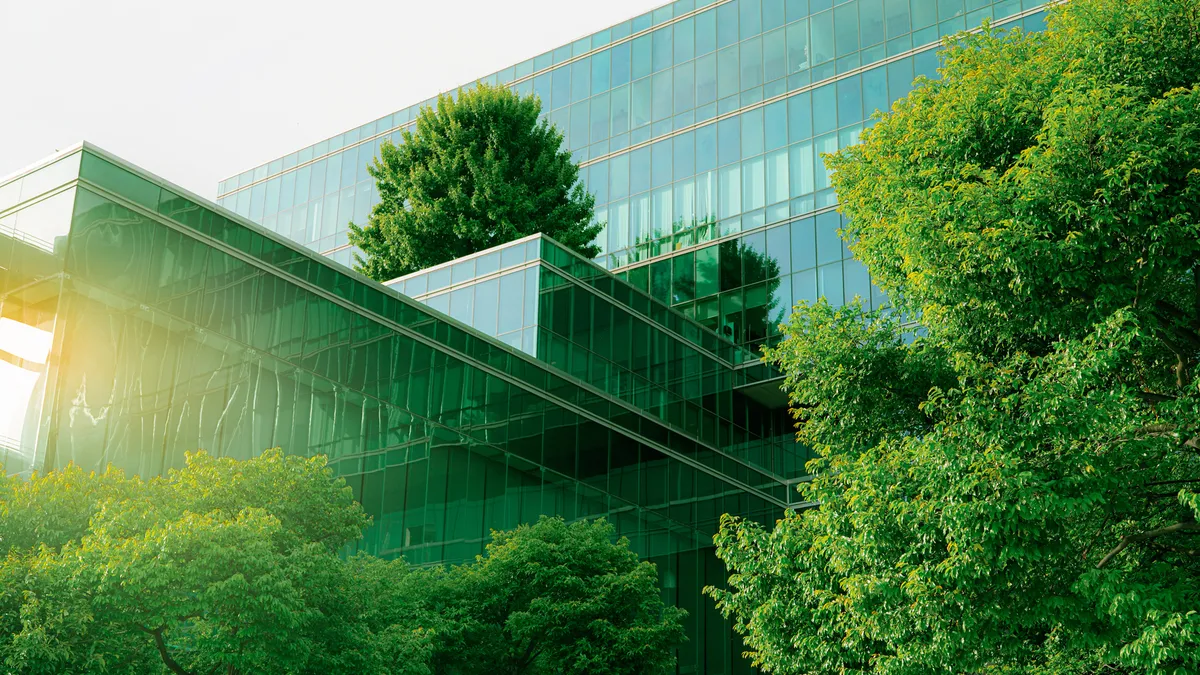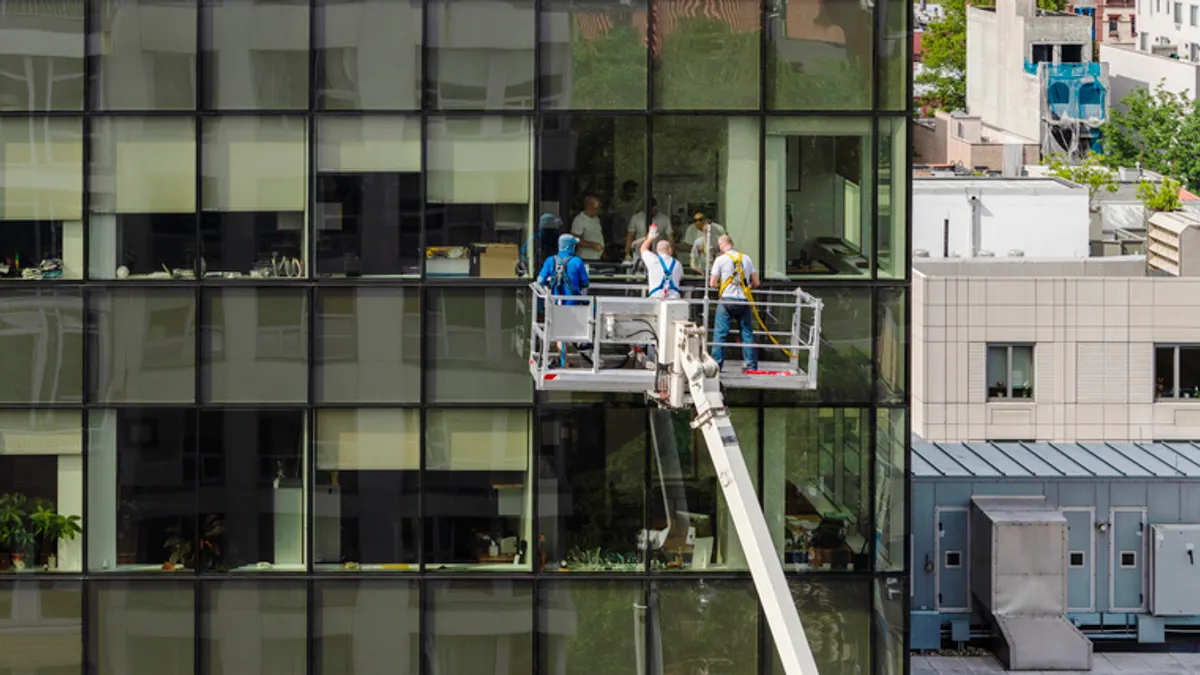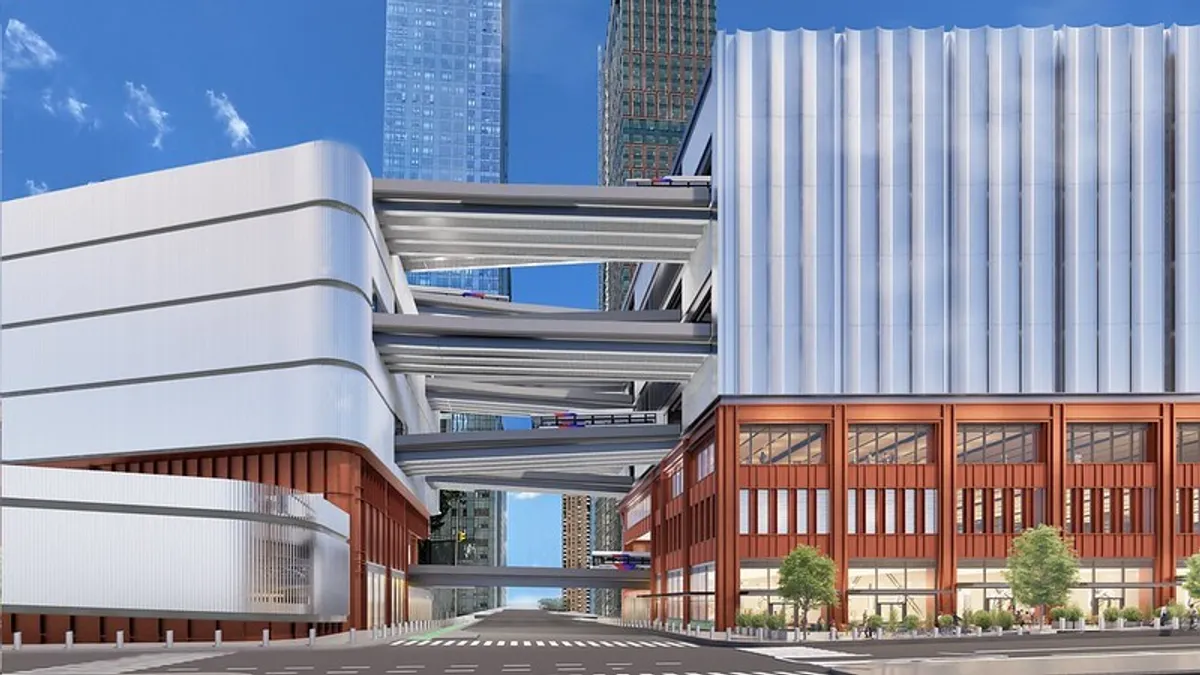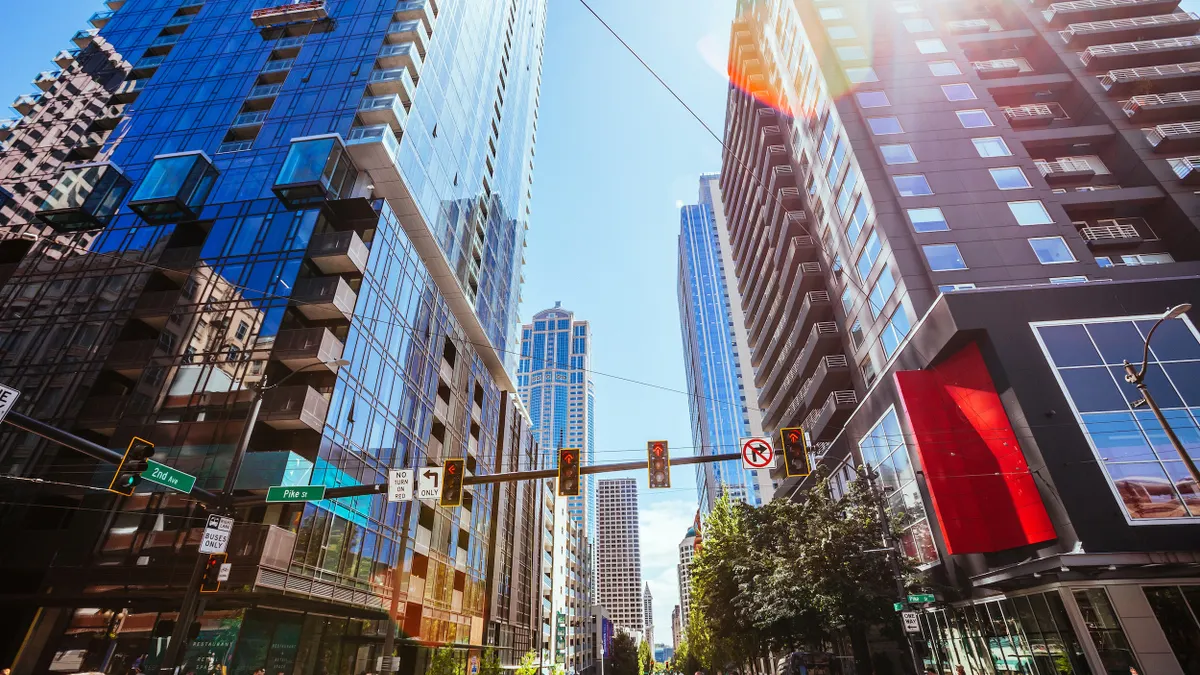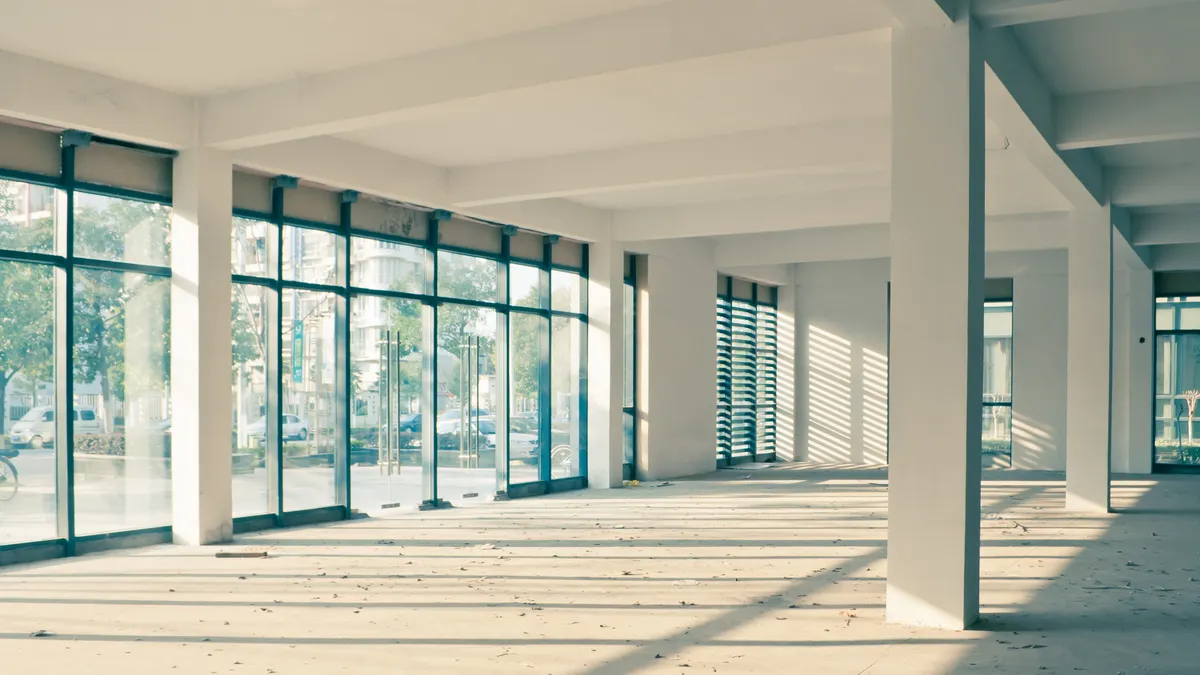San Francisco this week became the latest, and perhaps the largest, U.S. city to ban natural gas in new buildings.
In a meeting on Tuesday, the city's Board of Supervisors passed legislation requiring new residential and commercial building construction to utilize all-electric power, starting with projects that file permits next year. This ordinance will cover about 60% of the city's current development pipeline in an effort to reduce city carbon emissions and tackle climate change, said District 8 Supervisor Rafael Mandelman in the meeting.
"San Francisco has taken climate change seriously for a long time and today — on the heels of yet another catastrophic fire season, a record string of unhealthier days, extreme heat waves, and even a day when the sun didn't come up — we San Franciscans have an opportunity to make one more incremental but important move to help save our planet," he told his colleagues in the meeting.
The board's unanimous vote concludes nearly a year of deliberation with the Zero Emissions Building Taskforce, Mandelman said, which brought together affordable housing and mixed-use developers, architects and engineers, labor and building trades and community advocates to craft the legislation. It complements the approval of the city's electric preference ordinance, passed last fall to require higher energy efficiency standards from natural gas buildings, and an ordinance passed earlier this year requiring all-electric construction for new municipal projects.
The vote also adds San Francisco to the growing list of nearly 40 California cities to pass such ordinances since Berkeley's historic ban on natural gas infrastructure July 2019. Experts say San Francisco's measure could hold enough weight to pressure similar legislation from cities such as Los Angeles, and could even push Gov. Gavin Newsom, D, toward statewide action.
The California Energy Commission (CEC) is currently considering updates to its building energy efficiency standards under Title 24, said Earthjustice Staff Attorney Matt Vespa. Newsom has a particularly special relationship with San Francisco as its former mayor, which could inspire him to follow suit with the city, said Vespa.
"We're really expecting the governor's leadership on this issue," Vespa said. "Hopefully San Francisco adopting this will signal to the governor that it's time to really take this issue on as part of his climate agenda."
The case for all-electric construction in California
Residential and commercial buildings are responsible for about 25% of California's greenhouse gas (GHG) emissions, according to the California Air Resources Board. Senate Bill 32 requires California to reduce its statewide GHG emissions to 40% below 1990 levels in the next 10 years, and some argue the building sector should be the primary target of this effort.
Part of this argument rests on the flammability of natural gas. In an opinion post for the San Francisco Chronicle, Mandelman and retired Fire Chief Joanne Hayes-White said California sees more than 75 gas leaks or emergencies reported every hour, posing an incredible risk in a state that sees some of the hottest temperatures on record.
"Firefighters and first responders know the incredible effort required to contain even a relatively minor event. As we face a series of historic wildfires and heat waves, on top of a global pandemic already straining our emergency response, the last thing we need is to be adding to the threats we face," the post reads.
Pacific Gas & Electric (PG&E), the utility which services nearly the entire state of California, supports a shift to all-electric new construction. In a June letter filed with the CEC, a PG&E exec said the utility "welcomes the opportunity to avoid investments in new gas assets that might later prove underutilized as local governments and the state work together to realize long-term decarbonization objectives."
As the CEC considers embedding an all-electric building mandate in its 2022 update, Mandelman is hopeful that San Francisco can serve as a model for how to address inevitable obstacles, such as the transition of gas industry plumbers and pipe fitters. Mandelman said he worked closely with Local 38, the regional plumber and pipe fitters union, to outline a just transition for these workers amid San Francisco's ordinance.
"This commitment will ensure that our workforce can look forward to a future where ongoing environmental initiatives will go hand-in-hand with opportunities for good union jobs in San Francisco," he said in the board meeting.
Mandelman also emphasized how a shift to all-electric construction can be done incrementally to ensure it doesn't overburden industries. San Francisco's ordinance includes two provisions specifically to address concerns raised by the city's restaurant industry, which is particularly challenged in this time of "extraordinary uncertainty," he said. Those provisions allow projects including a commercial kitchen space to file permits for mixed fuel buildings until 2022. The ordinance also includes an "ongoing waiver process" for new restaurant buildings where gas is essential or electric alternatives are unfeasible.
"I believe this limited restaurant waiver will allow for the continued use of gas in new buildings in the future where appropriate and necessary for a particular restaurant, while still ensuring that we clearly and decisively begin the transition away from natural gas in San Francisco," Mandelman said.







